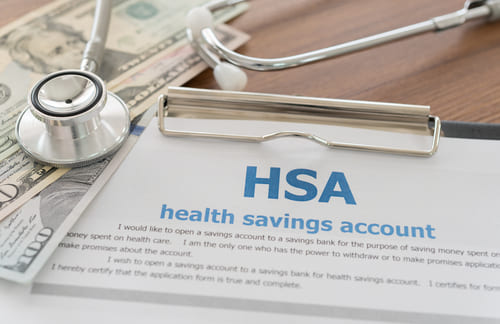Are Health and Wellness Expenses Tax-Deductible?
 Because of the high costs of taxes in the United States, taxpayers will often be looking to utilize any deductions or credits that may be available. Unfortunately, this may leave some people vulnerable to tax scams in which they are encouraged to claim inappropriate deductions. The IRS has noted that some companies are encouraging people to claim deductions for health and wellness expenses.
Because of the high costs of taxes in the United States, taxpayers will often be looking to utilize any deductions or credits that may be available. Unfortunately, this may leave some people vulnerable to tax scams in which they are encouraged to claim inappropriate deductions. The IRS has noted that some companies are encouraging people to claim deductions for health and wellness expenses.
While there are some legitimate medical expenses that are deductible, claiming inappropriate deductions could lead to tax audits or IRS penalties. An attorney with experience in tax law can help address these situations and ensure that a taxpayer takes the correct steps to respond to the IRS and avoid or minimize penalties.
Deductible Medical Expenses and Health Savings Accounts
Taxpayers may be able to offset certain costs related to healthcare through the use of medical savings accounts. These may include health savings accounts (HSAs), flexible spending arrangements (FSAs), and other similar programs. A person, their employer, or other parties may make contributions to these accounts, and these contributions will be tax-deductible. Any interest earned from money saved in accounts will be tax-free. Distributions from HSAs may be used to pay qualified medical expenses, and these distributions will not be subject to taxes.
The medical expenses that may be covered by distributions from HSAs must be related to the diagnosis and treatment of diseases, mental illnesses, or other conditions. These expenses may include:
-
Physical examinations by doctors
-
Dental exams
-
Eye exams
-
Medications prescribed by medical professionals
-
Equipment and supplies used to treat medical conditions
-
Drug or alcohol abuse treatment programs
-
Programs to help a person quit smoking
-
Nutritional counseling or weight-loss programs used to treat specific diseases such as obesity, diabetes, or high blood pressure
-
Physical therapy to address the effects of an injury or medical condition
-
Over-the-counter drugs
-
Menstrual care products
-
Nutritional supplements recommended by a medical provider to treat a specific medical condition
While HSAs may be used for expenses related to diseases or medical conditions, they cannot be used for expenses related to general health and wellness. For example, they cannot be used to pay the costs of a gym membership or exercise program, even if these activities may be recommended by a doctor to improve a person’s general health. HSAs also cannot be used to pay for food and beverages in most cases, unless dietary requirements have been recommended by a physician to treat an illness and are not used to satisfy a person’s nutritional needs. Medical expenses related to food and beverages must be limited to costs that exceed the normal expenses for meeting regular nutritional needs.
The IRS has noted that some companies are encouraging taxpayers to use HSAs for inappropriate expenses. For example, these companies may claim that if a person has a doctor’s note, food purchased for the purpose of weight loss may qualify as a medical expense. These companies will typically charge a fee for providing these types of “doctor’s notes.” However, administrators of medical savings accounts will typically deny these types of claims, because they are not legitimate medical expenses.
If a plan does pay for or reimburse non-medical expenses, it may no longer be considered a qualified plan. Payments received from non-qualified plans will not be tax-deductible, and taxpayers will be required to pay income taxes on these payments.
Contact Our San Jose Tax Audit Lawyer
Issues related to tax-deductible medical expenses can be complex, and taxpayers may be concerned about whether they may face audits or penalties based on the deductions they have claimed. At John D. Teter Law Offices, our San Jose, CA tax law attorney can help address these issues and ensure that a taxpayer will be able to respond to queries from the IRS or penalties assessed due to inappropriate deductions. To learn more about how we can help ensure that deductions are claimed correctly, contact us at 408-866-1810 and arrange a consultation.









